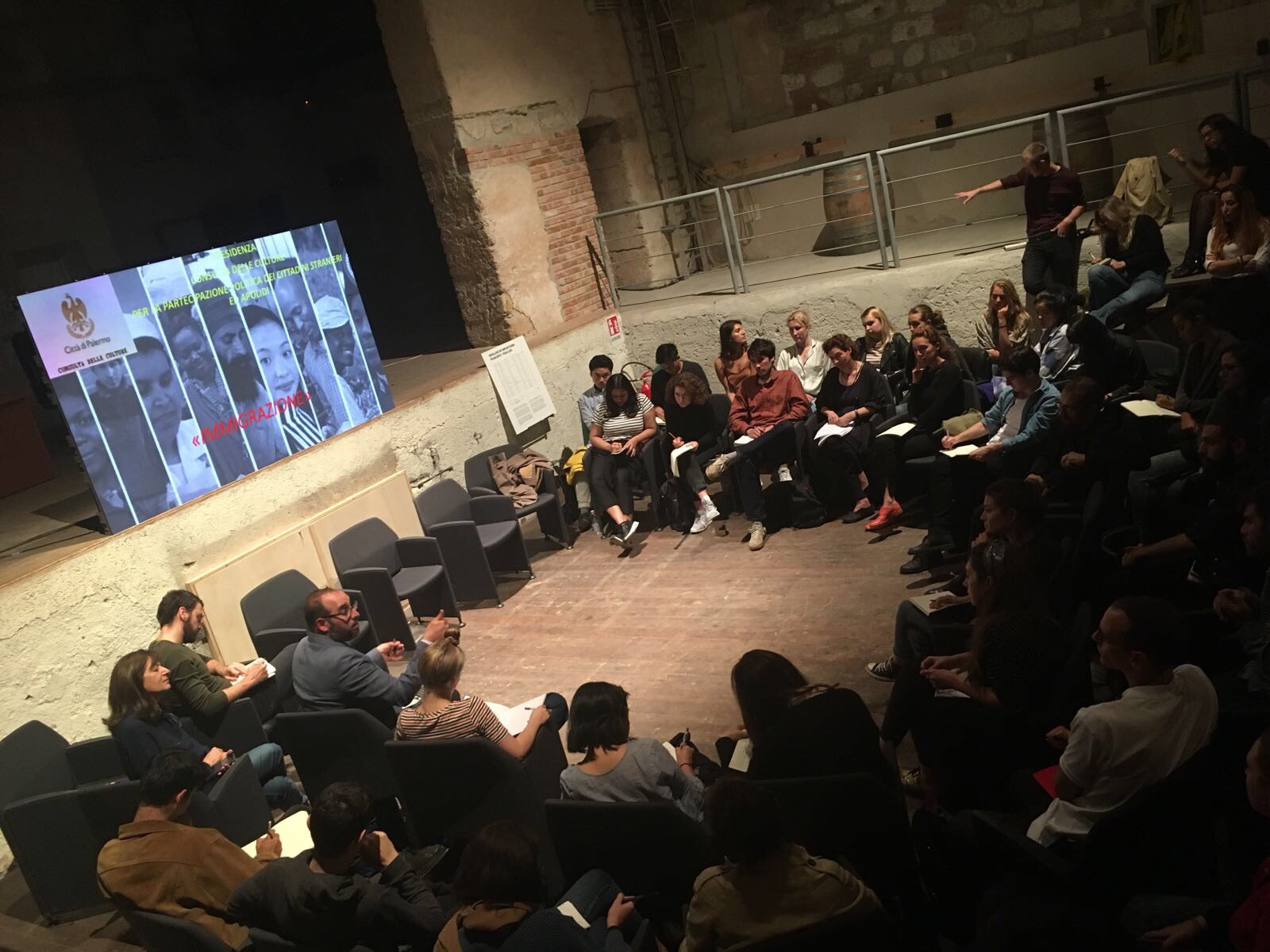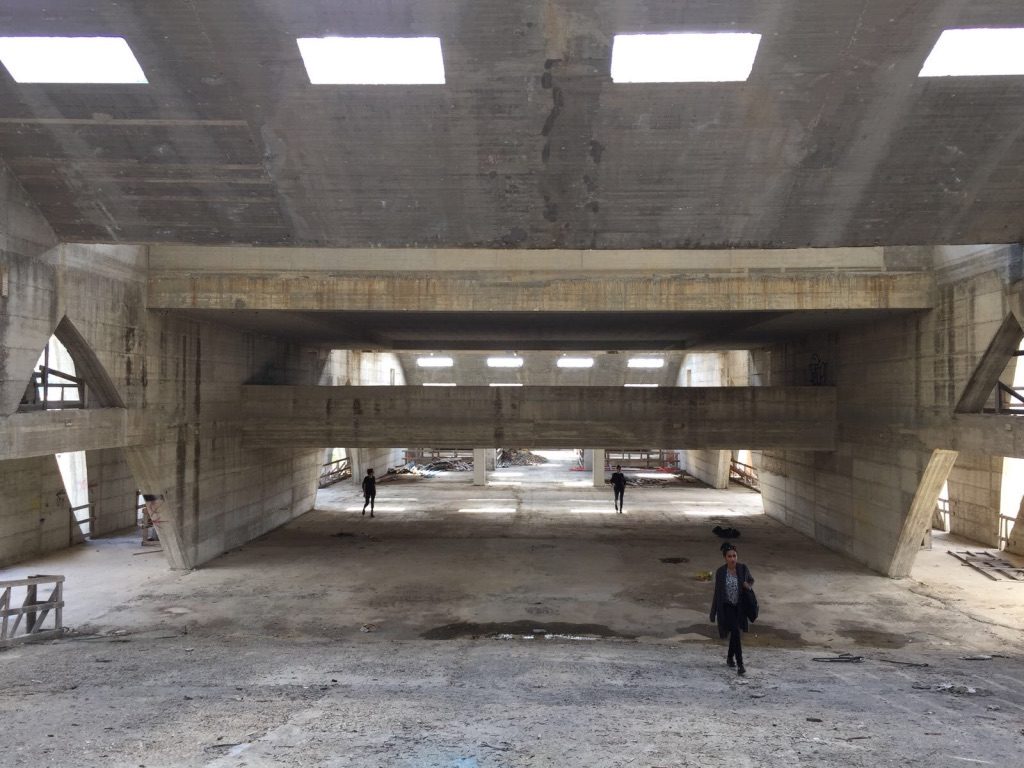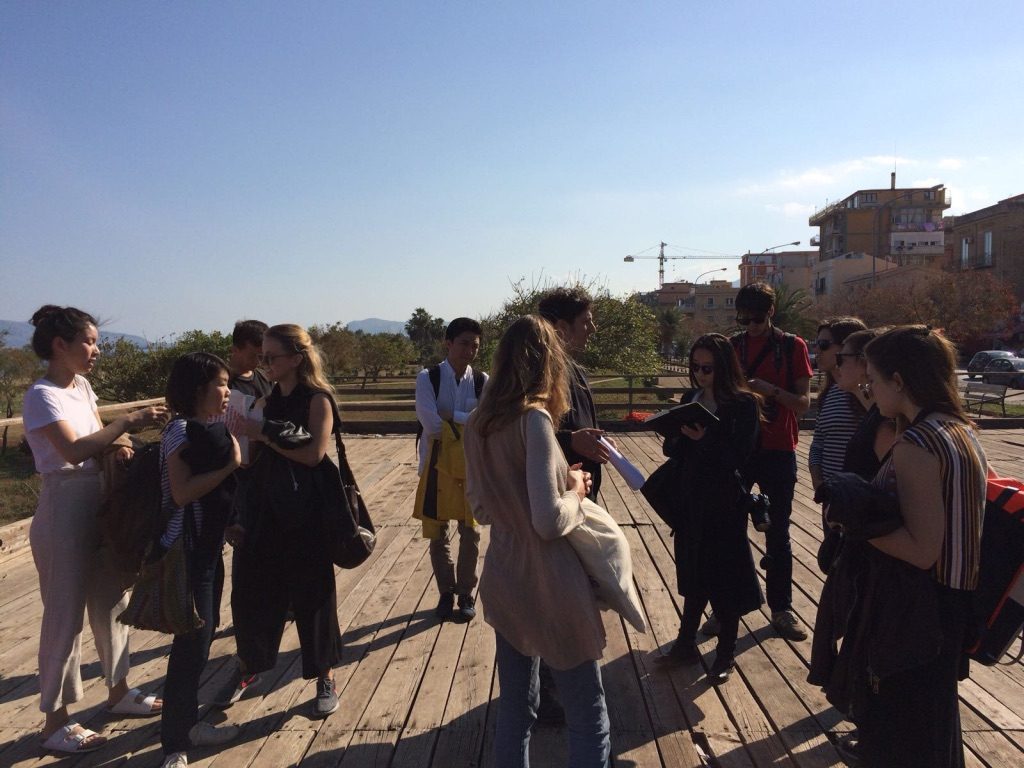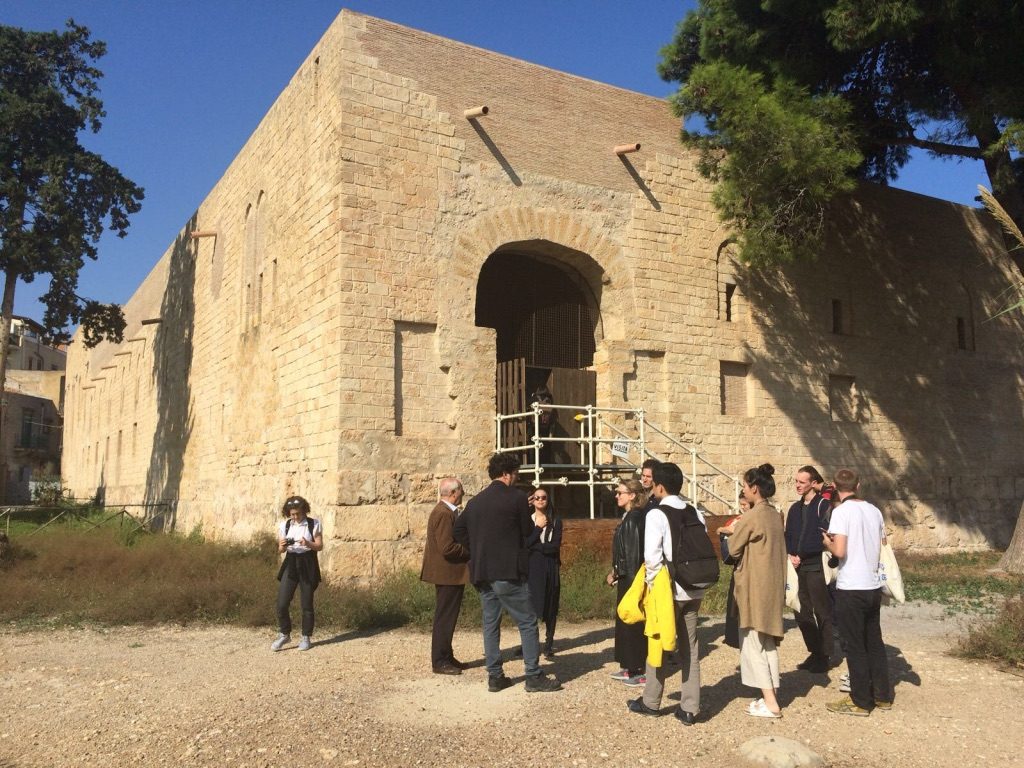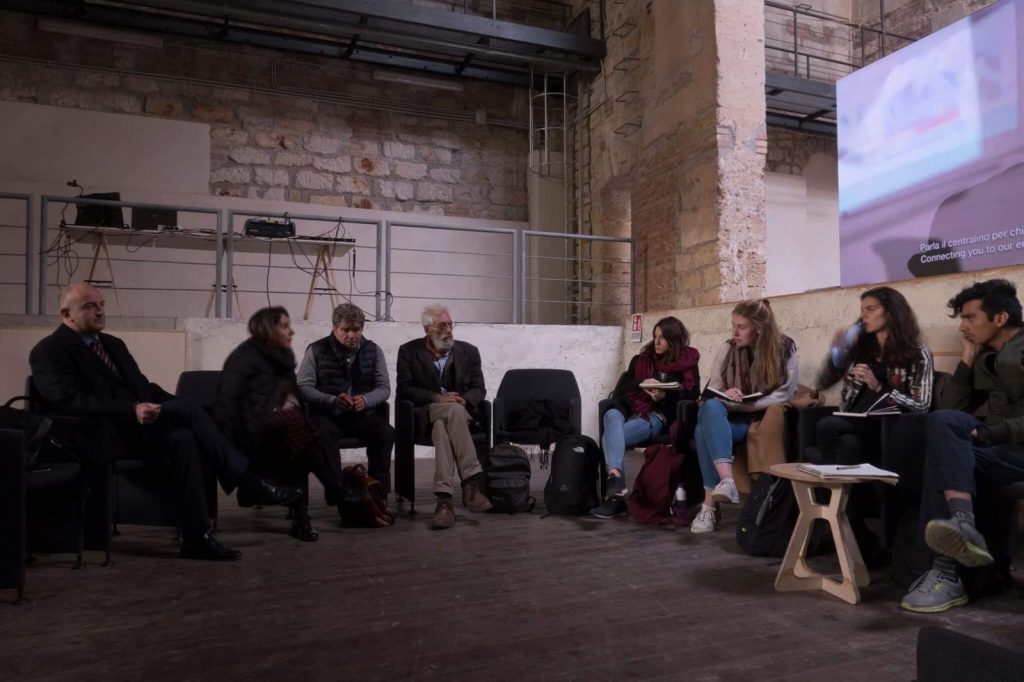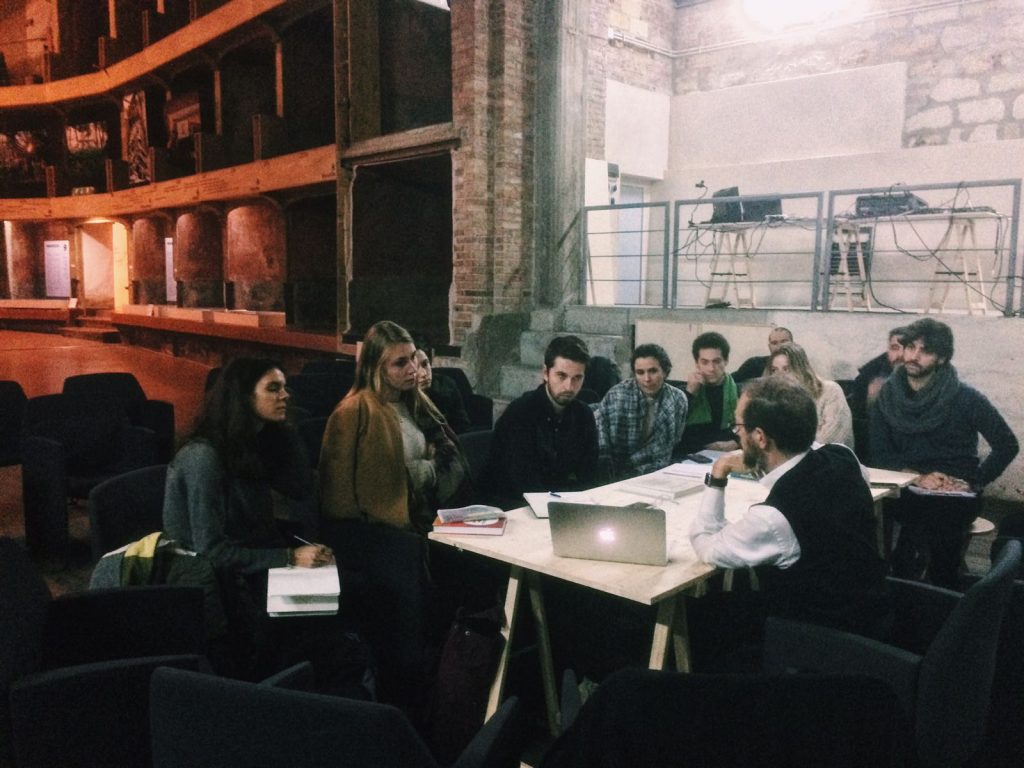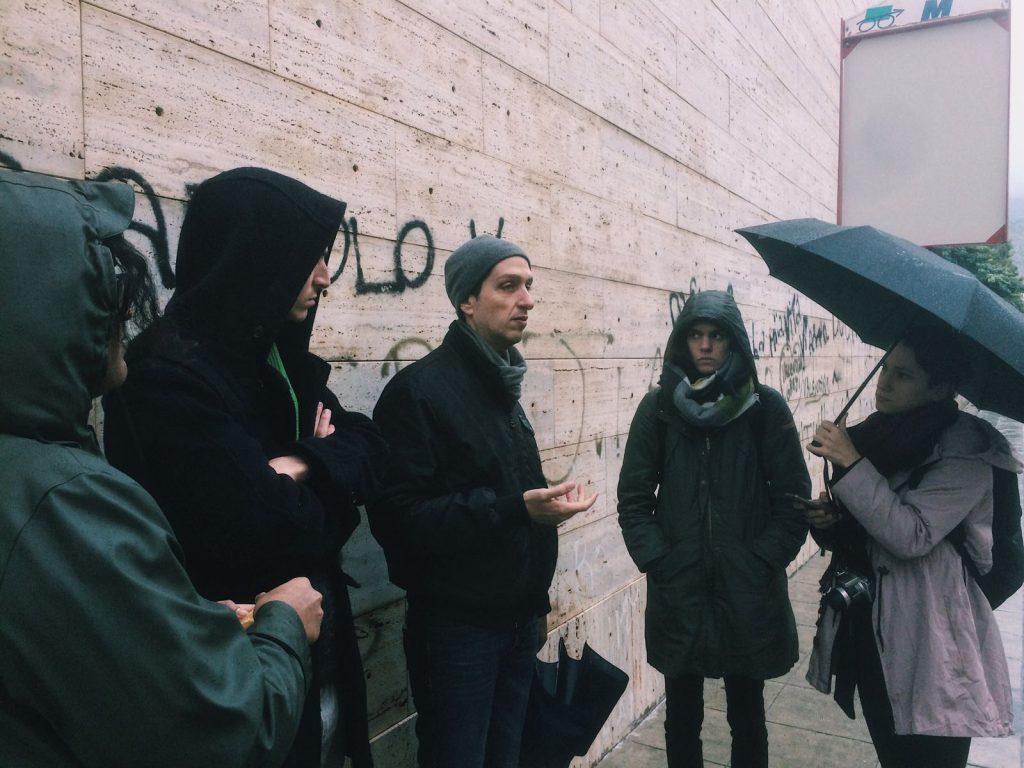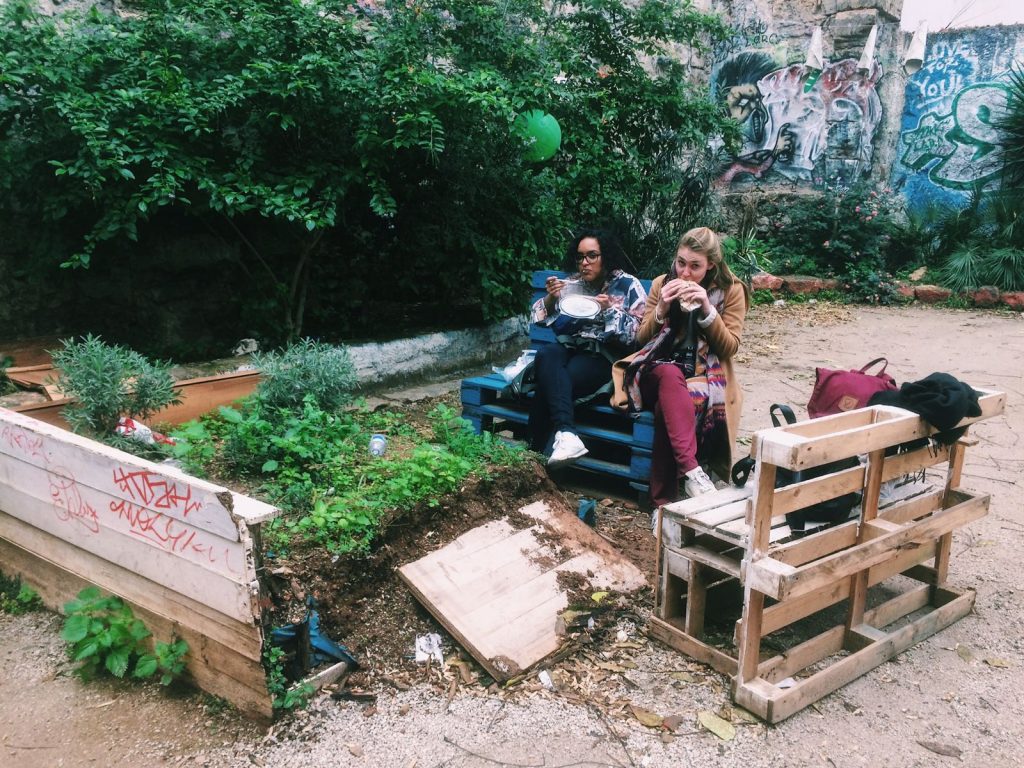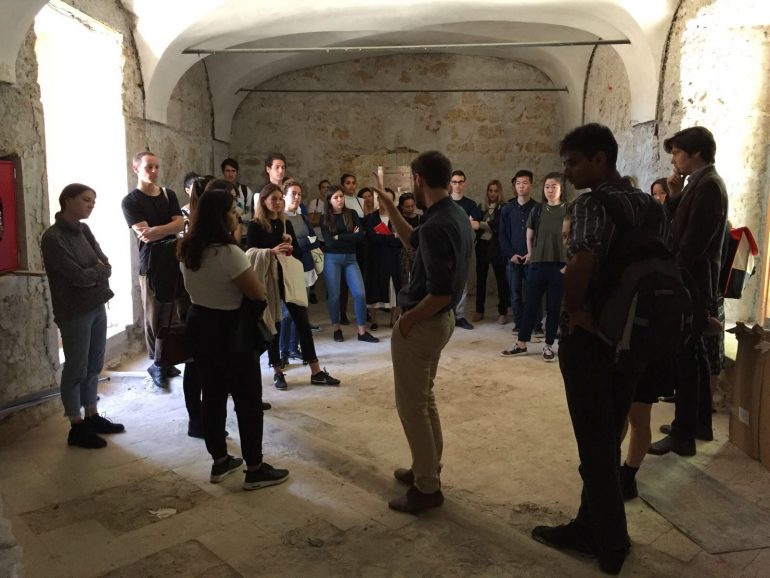Over the course of two semesters four international studios from four celebrated schools of architecture – Architectural Association and Royal College of Arts from London, TU Delft from the Netherlands and the local UNIPA – have investigated, reflected and proposed future scenarios for the city of Palermo.
Conceived as a long term exploratory and design process developed within the framework of Manifesta 12, and freely based on OMA’s Palermo Atlas, the four studios have worked in close collaboration with local experts, activists, academics and citizens to address a diverse range of topics: Palermo as a center of cultural production and its relationship to Manifesta as a temporary event and as an institution; nature and gardening as possible platforms to investigate new forms of coexistence and urban practices; domestic institutions as alternative models of political participation and civic representation; the role of the digital in the planning process of resilient cities.
The work of the studios is displayed in a collective exhibition at the former mill of the Convent of San Antonino – one of UNIPA’s main locations in Palermo – and staged through a series of performances and actions through the city.
Exhibition running through 4 November 2018 at Convento S. Antonino, Corso Tukory 2E.
Opening hours: Monday to Friday from 9am to 9pm.
1. PRESERVING DELAY. AA MUSEUM LAB (Dip. 15)
Architectural Association, London.
Relentlessly questioning the ever-changing role of cultural institutions, the AA Museum Lab students embraced the opportunity to collaborate with Manifesta to investigate on the complexities of Palermo’s formal and informal cultural scene.
The State of Delay of the Mediterranean epicentre – evidence of the innate resistance to change vis-à-vis conquerors, human/natural calamities and unorthodox forms of governance – allowed for the involuntary preservation of levels of authenticity long forgotten in most globalised cities worldwide. The ambition of the AA Museum Lab is to examine, unveil and instrumentalize such condition by proposing curatorial strategies that allow each site to enjoy a renewed value.
Relying on close collaborations with local actors, the student’s projects: contest impending gentrification trends though street art curation; respond to EU imperatives challenging ritual processions; unveil “sites inscribed”; analyse “land in suspension”; consign neglected shrines; rethink the courtroom; visualize Sciascia’s “Sicilianita’” and Battaglia’s archive; identify “rooms of delay”; curate a nature-driven demolition of abandoned houses in Pizzo Sella.
Dislocated within the city, the student’s projects are also presented in the form of a collective exhibition – a re-enactment of the intervention in Pizzo Sella – which encapsulates the student’s fascination for Palermo’s suspension and its potentiality, in dialogue with Manifesta’s “Planetary Garden”.
Unit Master: Giulia Foscari
Unit Tutors: Harikleia Karamali, Giacomo Ardesio
Students: Vidhi Goel, William Himpe, Andrew Kwok, Linxin Li, Mingyi Lim, David Lin I-Chun, Sadia Rahman, Alexandra Savtchenko-Belskaia, Zhan Su, Jane Wong.
Website: dip15.aaschool.ac.uk
2.ADS8: DOMESTIC INSTITUTIONS
RCA, MA architecture
Engaging with the architectural, urban, economic, social and cultural structures of Palermo, ADS 8 considers the city as a political body where to test new forms of institutions and instituting.
The studio reflects on and takes advantage of the nature of shared space in Palermo, where the idea of an alternative, non-regulated, form of collectivity is rehearsed: a place of dialogue and discussion, of consensus and dissent; a place where existent forms of social structures, economies and cultural institutions are continuously redefined.
ADS8 has encountered multiple critical conditions registered in the complex milieus of Palermo – from human trafficking, to transitory migration and agricultural labour; from rapid gentrification, to informal micro economies; from social segregation, to gender discrimination. By examining these conditions and the spaces in which they manifest, the studio has proposed a series of intervention in which, through architecture, these conflictual spaces could potentially unfold as active forums for civic encounter and political action and representation, or what we call domestic institutions.
Taking Palermo as a point of departure, ADS8 aims to develop strategies communicated via prototypes and protocols to allow its replicability and scalability. By addressing critical conditions on a domestic scale, ADS8 investigates how local intervention could have an impact on a global scale, taking Manifesta as the platform to allow that initial dissemination to happen.
Tutors: Anna Puigjaner, Ippolito Pestellini Laparelli , Marina Otero Verzier, , Kamil Dalkir;
Students: Jade Blanchard-McKinley, Teresa Ribeiro Boulting, Joel Cunningham, Ines Gulbenkian, George Allen, Tzen Chia, Sophie Williams, Cecile-Diama Samb, Josephine Devaud, Isabella Duffield, Samuele Paglino, Humza Hamid, Maria Saeki, Beth Fisher;
Website: www.rca.ac.uk/ads8-domestic-institutions
3. RADICAL GARDENING
TU Delft, MSC2_Complex Projects_Palermo studio
Conceived as a series of open ended explorations and engaged with the framework of Manifesta 12 in Palermo, the TU Delft Msc2 studio proposes an exploration of some of the most relevant “gardens” of the city.
As both heroes and victims of Palermo’s complex history, “gardens” can be seen as the stage of the city political and physical transformations, as well as a testing ground for experimental urban practices. “Gardens” act as living laboratories where nature and culture collaborate, where different communities participate in forms of politics based on encounter. “Gardens” allow for crosspollination and ‘impurity’; they are arenas where humans and ecosystems have negotiated coexistence with the unfamiliar and the toxic. “Gardens” are also contested sites of territorial exploitation and control; they witness and register the conflicts and transformations of their time.
Embarked into a journey across Palermo, the studio went over the fences to look for public or secret, historical or recent, preserved or abandoned, “pure” or “toxic”, productive or ornamental, scientific or informal “gardens” in and around the city, seeking for possible narrations and future scenarios.
Chair professor: Kees Kaan;
Studio leaders: Ippolito Pestellini Laparelli, Paul Cournet, Giulio Margheri;
Teaching assistants: Mariapaola Michelotto, Fay Zafiropoulou;
Students: Andreea Visan, Danny Arakji, Efrain Fajardo Ibarra, Fay Zafiropoulou, Fi Thompson, Haozhuo Li, Hugo Bolsius, Jiao Chen, Jie Kai Woo, Jip Colenbrander, Lydia Polykandrioti, Maarten Limburg, Nadine Tietje, Nino Schoonen, Pavel Gorokhovskyi, Rebecca Lopes Cardozo, Sanne Beckers, Sara Perera-Hammond, Setareh Noorani, Venla Keskinen, Tymon Hogenelst.
Website: www.tudelft.nl/en/education/complex-projects
4. Hyper-City Studio: Augmented Palermo in the Neo-Anthropocene Age
Università degli Studi di Palermo
The Unipa’s PAERMOLAB acts as a teaching-research-action agency to produce innovative urban solutions. Palermo is a hyper-city, a city of cities, an archipelago of hybrid spaces and plural communities that require a scaling approach to re-imagine buildings, infrastructures and landscapes.
The exhibition tells stories of places and people, hybridizing points of view and methodologies and proposing projects, policies and concrete actions on urban space. Creativity, energy, resilience and participation are resources to design a city based on culture, creativity, nature and manufacture.
Palermo is thought and designed as an Augmented City, an enabling and generative community device arranged along two backbones: the Waterfront and the Ringroad, proposing new ecological, cultural, social and productive functions for the transition areas, based on recyclical spaces, community hubs, intercultural places, creative epicentres, energy housing, blue&green infrastructures.
Rethinking the development model asks to design cities as generative resources to reactivate the life cycle for entering in the Neo-Anthropocene Age.
PALERMOLAB/DARCH: 5 Labs for augmenting Palermo
CreativeCity Lab, Maurizio Carta: Augmented Palermo
City within City, Alessandra Badami: Urban Re-generation
LabCity, Renzo Lecardane: Temporary experience in architecture
QU_ID Lab, Marco Picone, Filippo Schilleci: Planning participatory process.
InfraLab, Zeila Tesoriere: Infrastructural Leap
Students: Agliata Elena, Bonello Federica, Macaluso Silvia, Ebreo Sara, Attardi Vittoria, Billi Rebecca, Sicomo Dalila, Bono Federica, Di Prima Sonia, Marchese Francesca, Pozzan Marina, Urso Federico, Giordano Gaetano, Cammarata Emanuela, Lo Cricchio Domenico, Sancilles Luca.
Website: www1.unipa.it/mcarta/LABURBA18/laburba18.html
